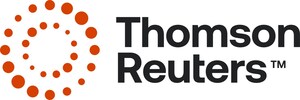Thomson Reuters-NPR Health Poll Finds More Americans Are Seeking Pricing Information Prior to Care
Information on pricing influences choice of healthcare provider
ANN ARBOR, Mich. and WASHINGTON, May 31, 2012 /PRNewswire/ -- More Americans seek pricing information before receiving healthcare, and the results they find are influencing their choice of healthcare provider, according to the Thomson Reuters-NPR Health Poll.
Thomson Reuters and NPR conduct a monthly poll to gauge attitudes and opinions on a wide range of health issues.
The survey asked respondents about their experiences with seeking out information on pricing for healthcare services. Identical questions were asked of respondents two years ago. The survey found that 16 percent of Americans who have received some kind of healthcare service in the past year have sought out pricing information before receiving that care, up from 11 percent in 2010.
Of those who sought information, 70 percent said the information influenced their choice of healthcare provider. Forty nine percent of respondents said they obtained pricing data from their insurance companies, up from 26 percent two years ago. Fifty percent of respondents said they received pricing information from their physicians, down from 60 percent when the question was asked two years ago.
Respondents are also obtaining data more frequently on the Internet. Forty five percent of those who received pricing data obtained it online, up from 22 percent who sought pricing information on the web in 2010. Overall, 86 percent said the pricing information they received was accurate, down from 98 percent.
"It is encouraging that people are increasingly incorporating cost information into their decision-making process when determining which healthcare services they should seek and from which providers," said Raymond Fabius, M.D., chief medical officer at the healthcare business of Thomson Reuters. "As more pricing information becomes widely available, along with quality comparisons, and more providers and health plans share their data transparently, we will see the emergence of a healthcare system that is more competitive and ultimately more sustainable."
To date, the Thomson Reuters-NPR Health Poll has explored numerous health topics, including generic drugs, abortion, vaccines, food allergies, and organic and genetically modified foods. NPR's reports on the surveys are archived online at the Shots health blog here.
Thomson Reuters maintains a library of poll results here.
The Thomson Reuters-NPR Health Poll is powered by the Thomson Reuters PULSE(SM) Healthcare Survey, an independently funded, nationally representative telephone poll that collects information about health-related behaviors and attitudes and healthcare utilization from more than 100,000 US households annually. Survey questions are developed in conjunction with NPR. The figures in this month's poll are based on 3,018 participants interviewed from April 2-14, 2012. The margin of error is 1.8 percent.
For a copy of the full survey, click here.
About Thomson Reuters
Thomson Reuters is the world's leading source of intelligent information for businesses and professionals. We combine industry expertise with innovative technology to deliver critical information to leading decision makers in the financial, legal, tax and accounting, healthcare and science and media markets, powered by the world's most trusted news organization. With headquarters in New York and major operations in London and Eagan, Minnesota, Thomson Reuters employs more than 55,000 people and operates in over 100 countries. For more information, go to www.thomsonreuters.com.
About NPR
NPR is an award-winning, multimedia news organization and an influential force in American life. In collaboration with more than 900 independent public radio stations nationwide, NPR strives to create a more informed public - one challenged and invigorated by a deeper understanding and appreciation of events, ideas and cultures.
SOURCE Thomson Reuters
WANT YOUR COMPANY'S NEWS FEATURED ON PRNEWSWIRE.COM?
Newsrooms &
Influencers
Digital Media
Outlets
Journalists
Opted In





Share this article